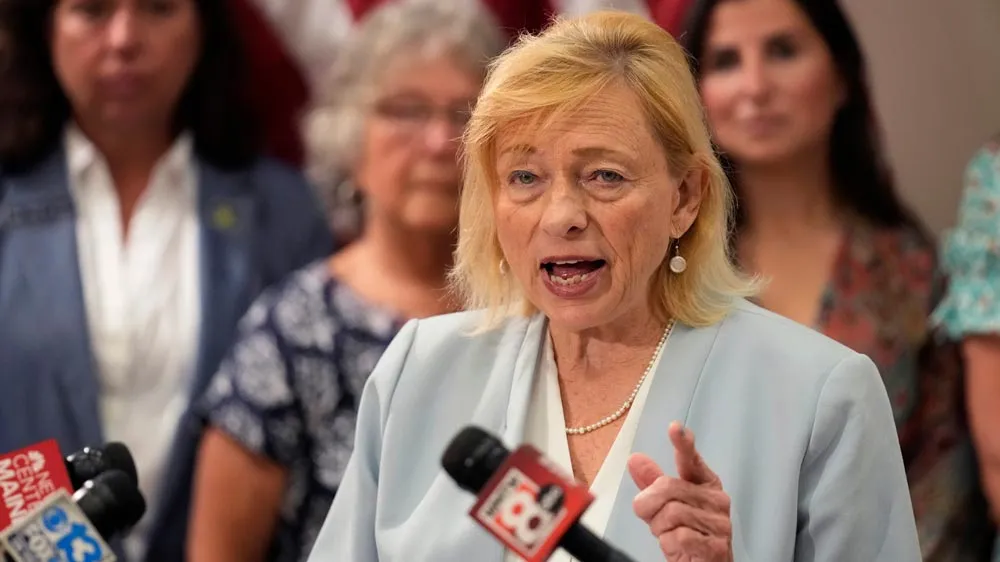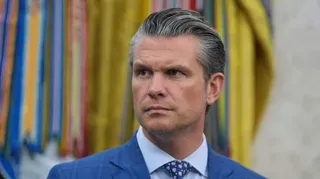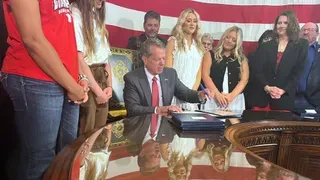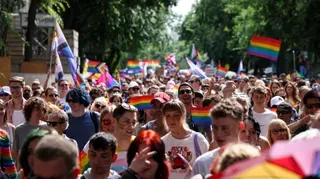January 28, 2011
Calls for Justice in Wake of Ugandan GLBT Activist's Murder
Kilian Melloy READ TIME: 6 MIN.
The international community responded is the wake of the murder of Ugandan GLBT activist David Kato, who was attacked and beaten in his home on Jan. 26. Kato died en route to a hospital. He had been bludgeoned with a hammer, suffering two blows to the head, according to a Jan. 27 Associated Press article.
Kato was among the 100 Ugandans whose names, photos, and addresses were published by Ugandan tabloid Rolling Stone (a separate publication from the American music magazine). Rolling Stone called for vigilante action against the purported gays and lesbians it listed in the article, which was headlined "Hang Them."
Kato was part of a group called Sexual Minorities Uganda. He and two others who had been named in the Rolling Stone article took the tabloid to court and won their case; the court ruled that Rolling Stone had infringed upon their rights. The tabloid expressed no remorse and vowed to continue its persecution of the country's GLBTs.
"Across the entire country, straight, lesbian, gay, bisexual, transgender and intersex Ugandans mourn the loss of David, a dear friend, colleague, teacher, family member and human rights defender," said the head of Sexual Minorities Uganda, Frank Mugisha.
Among groups and individuals condemning Kato's slaying and demanding that Ugandan police launch a serious investigation was The International Gay and Lesbian Human Rights Commission (IGLHRC), which issued a press release on Jan. 27, the day after Kato was killed.
The release stated that IGLHRC "stands in solidarity with Uganda's lesbian, gay, bisexual and transgender community in strongly condemning yesterday's killing of human rights defender David Kato. IGLHRC joins groups across the world to demand that the Ugandan government immediately denounce David's murder, thoroughly and impartially investigate this heinous crime and ensure the safety of all LGBT Ugandans."
"We are shocked and saddened by the news of the murder of David Kato," said the head of IGLHRC, Cary Alan Johnson. "David was an important leader of the Ugandan and East African LGBT movement. While the circumstances of David's death are not fully clear, I have no doubt that homophobia in its many vicious forms is responsible for his tragic death."
Police said that Kato was attacked and beaten by "robbers," and denied that Kato's sexuality or the Rolling Stone article had any bearing on his murder. But the IGLHRC release noted that his "death comes in the wake of threats Kato received and alongside violence and intimidation that LGBT individuals and their supporters have suffered. It highlights the grave safety and security dangers confronting the Ugandan LGBT community and those working in defence of human rights." The release also noted that, "In recent days, in addition to Kato, the two other plaintiffs in the Rolling Stone case have also been subjected to violence, raising concern that they have been targeted because of this case and remain in grave danger."
Kato's death is only the latest development in a pattern of anti-gay demonization and persecution in Uganda. Several American evangelicals visited the country in 2009 and purported to warn their audiences of the threats they said gays posed to society and to the family. The evangelicals suggested that gays intended to destroy the institutions of marriage and family and "recruited" young people who would otherwise not be gay.
"David's death is a result of the hatred planted in Uganda by U.S evangelicals in 2009," Ugandan GLBT equality advocate Val Kalende declared, the AP reported. "The Ugandan government and the so-called U.S evangelicals must take responsibility for David's blood."
The Human Rights Campaign also suggested in a Jan. 27 press release that an anti-gay religious influence from the United States bore some of the blame for the virulently anti-gay social climate in Uganda. "We mourn the loss of David Kato, a member of the international LGBT community," Sharon Groves, the deputy director of HRC's Religion & Faith Program, said. "An atmosphere of extreme homophobia in Uganda has clearly contributed to a climate where LGBT people are unsafe.
"Fundamentalist ministers in the United States who have systematically exported homophobia to Uganda share responsibility for this tragedy and we call on them to stop exporting hatred masked as religion," added Groves.
One of the American evangelicals who addressed Ugandan crowds, Don Schmierer, called the murder "horrible," but denied any responsibility for Kato's death. "Naturally, I don't want anyone killed, but I don't feel I had anything to do with that," Schmierer told the New York Times. Schmeirer added that he had also received threats for having been on of the three evangelicals who spoke in Uganda on the 2009 visit.
"I spoke to help people, and I'm getting bludgeoned from one end to the other," said Schmierer.
Shortly after the evangelicals visited Uganda, one of the nation's lawmakers, David Bahati, sponsored a bill to put gays to death. Homosexuality is already illegal in Uganda, but Bahati' bill went farther than imposing the death penalty for some sexual offenses, such as repeated sexual contacts between individuals of the same gender. The bill also stipulated that any heterosexuals who knew of homosexual relationships and did not report them to the police would face severe penalties.
"The tabloid's call for 'death for all homosexuals in Uganda' is part of the larger human rights crisis for LGBT people in the country," IGLHRC's release stated. "Kato, as advocacy officer of Sexual Minorities Uganda (SMUG), was active in the fight against the 'Anti-Homosexuality Bill' proposed in Uganda's parliament in October 2009 and still pending.
"IGLHRC calls upon the government of Uganda to publicly condemn Kato's murder, carry out a full and fair investigation into his death, and prosecute the perpetrator to the fullest extent of the law," the release continued. "Additionally, Ugandan authorities should provide police protection to LGBT human rights defenders who want it, particularly at their homes and offices."
"This tragedy was predictable," Johnson added. "We warned the Ugandan government that its inaction would result in tragedy, and this horrific warning has now come true.
"The Ugandan government can be silent no longer," Johnson continued. "No Ugandan should be at risk of loss of life, regardless of their sexual orientation or gender identity."
Human Rights Watch also spoke out against the slaying. "David Kato's death is a tragic loss to the human rights community," said the HRW's Maria Burnett, who went on to say that Kato had been threatened for his work in promoting GLBT rights, and "had faced the increased threats" with courage.
British GLBT equality advocate Peter Tatchell also issued a press release denouncing Kato's murder. "I salute David and his immense, brave contribution to LGBTI human rights in Uganda," wrote Tatchell. "He was an inspiring campaigner of long and great commitment.
"David will live on in our memories," Tatchell continued. "He will also live on through the rights and equalities that LGBTI Ugandans will win eventually thanks to his many years of tireless groundwork and campaigning." Added Tatchell, "This savage killing will, I hope, finally prompt Uganda's political, religious and media leaders to cease their homophobic witch-hunts. Their hatred helps create the bigoted atmosphere that leads to queer-bashing violence.
"I urge the government of Uganda to withdraw the 'kill the gays' Anti-Homosexuality Bill, decriminalize same-sex relations and legislate protection for LGBTI people against discrimination and hate crimes," Tatchell continued.
GLBT advocacy groups and human rights activists were not the only ones calling for a swift and satisfactory response from Uganda's police. "Our thoughts and prayers are with his family, friends, and colleagues," said U.S. Secretary of State Hillary Rodham Clinton. "We urge Ugandan authorities to quickly and thoroughly investigate and prosecute those responsible for this heinous act. David Kato tirelessly devoted himself to improving the lives of others."
President Obama also condemned Kato's murder, reported Politico on Jan. 27. "At home and around the world, LGBT persons continue to be subjected to unconscionable bullying, discrimination, and hate," said Obama. "In the weeks preceding David Kato's murder in Uganda, five members of the LGBT community in Honduras were also murdered. It is essential that the Governments of Uganda and Honduras investigate these killings and hold the perpetrators accountable.
"LGBT rights are not special rights; they are human rights," noted Obama. "My Administration will continue to strongly support human rights and assistance work on behalf of LGBT persons abroad. We do this because we recognize the threat faced by leaders like David Kato, and we share their commitment to advancing freedom, fairness, and equality for all."
Kilian Melloy serves as EDGE Media Network's Associate Arts Editor and Staff Contributor. His professional memberships include the National Lesbian & Gay Journalists Association, the Boston Online Film Critics Association, The Gay and Lesbian Entertainment Critics Association, and the Boston Theater Critics Association's Elliot Norton Awards Committee.






